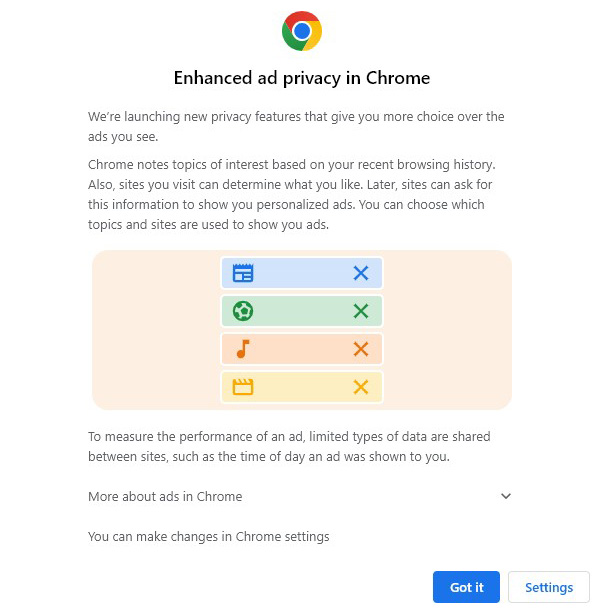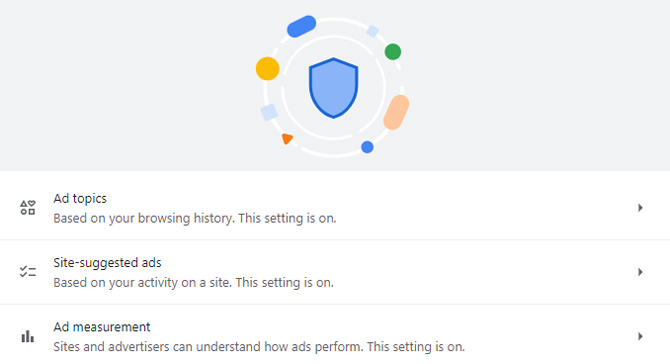When users of Google Chrome update their browsers this month, they will be greeted by a pop-up entitled "Enhanced ad privacy in Chrome." This Enhanced Ad Privacy tool has three features designed to give you more control over the kinds of ads you see and how much information you share with advertisers.

Enhanced Ad Privacy is a part of Google's Privacy Sandbox initiative and a step toward phasing out third-party cookies while preserving targeted advertising. Third-party cookies collect user data and share the information with other sites to generate targeted ads. (So it's a good idea to clear your browser cookies regularly). As Google transitions away from third-party cookies, you can use the new ad tools to choose how sites can target ads and measure their effectiveness.
The Enhanced Ad Privacy Tool has three parts: Ad topics, Site-suggested ads, and Ad measurement. Here are the pros and cons of enabling each feature.
How to set your Enhanced Ad Privacy settings
You'll find the new Enhanced Ad Privacy tool in Chrome settings. Go to Menu > Settings> Privacy and Security > Ad privacy.

Ad topics
When you turn on Ad topics, Google will observe your browsing and record topics that are relevant to you. Google and advertisers can't access your personal data – they only know what kinds of topics you might like. And, if you see a topic that Google thinks you're interested in that you don't want sites to use to serve ads, you can block it.
Whether you turn on this tool or not, you will see ads. The question is whether you want to share your interests with sites to see relevant ads. Google shares up to three topics with sites and will automatically delete any topics you haven't shown an interest in after 30 days.
If you don't like the idea of any information being shared with websites, even if it's been anonymized, you should opt out of Ad topics.
Site-suggested ads
If you turn on Site-suggested ads, you're allowing websites to monitor your browsing behavior and save information about your interests in your Chrome browser. These interests will be shared with other sites as you browse to help them serve targeted ads. You can choose which sites are allowed to suggest ads. Any site you haven't visited in 30 days and their site-suggested ads will be deleted from your browser.
If you don't like the idea of sites you're browsing sharing your interests, turn this feature off.
Ad measurement
Advertisers use Ad measurement tools to gauge the effectiveness of ads. As a consumer, there's no benefit to turning on Ad measurement. But it does help website owners and advertisers make money so you can continue to enjoy their content.
Ready to make Chrome more your own? Check our 12 Tips for Faster Browsing with Google Chrome and How to Turn Off Chrome Browser Notifications.
[Imaged Credits: Screenshots via Techlicious, image of laptop via Smartmockups]
Julia Liebell-McLean is a freelance writer interested in all things tech, especially tech start-ups. An experienced writer, editor, and writing tutor, she enjoys knitting, reading, and cooking in her spare time.

















